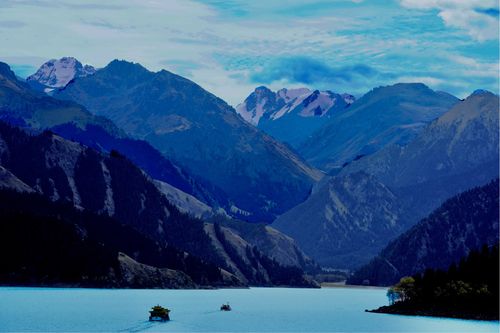Exploring the World’s Biodiversity through Expeditions
Humans have always been fascinated by the natural world and the vast array of life forms that inhabit it. From the towering trees of the Amazon rainforest to the colorful coral reefs of the Pacific Ocean, biodiversity is everywhere. And yet, despite centuries of exploration and discovery, we have only scratched the surface of what the world has to offer. That’s why expeditions are so important – they allow us to explore and document the incredible diversity of life on Earth.
Expeditions have been a key part of scientific exploration for centuries, with some of the most famous names in science – including Charles Darwin and Alfred Russel Wallace – embarking on journeys of discovery in remote and unexplored regions of the world. These early expeditions helped to lay the foundations for modern biology, providing us with a wealth of knowledge about the natural world and the organisms that inhabit it.
Today, expeditions are more important than ever. With increasing rates of habitat loss and climate change threatening the world’s biodiversity, there is an urgent need to document and understand the species that make up our planet’s ecosystems. Scientists are using new technologies, such as DNA sequencing and satellite imaging, to explore and map the world’s biodiversity in unprecedented detail.
One example of this is the recent Global Ocean Expedition, which aimed to explore the least explored areas of the ocean and discover new species of marine life. Led by a team of researchers from around the world, the expedition used state-of-the-art technology to explore the deep sea, including underwater drones and 3D mapping equipment. The team discovered dozens of new species, including deep-sea corals, sponges, and fish, and collected valuable data about the health of the ocean’s ecosystems.
Expeditions don’t just provide us with new knowledge about the natural world – they can also inspire people to care about biodiversity and become advocates for conservation. By sharing stories and images from their expeditions, scientists and explorers can help to raise awareness of the importance of protecting the world’s ecosystems and the species that inhabit them.
In conclusion, expeditions are a vital tool for exploring and documenting the world’s biodiversity. From the depths of the ocean to the tops of the highest mountains, there is so much still to discover and learn about the incredible diversity of life on Earth. By supporting and participating in expeditions, we can help to ensure that future generations are able to enjoy and appreciate the natural world, and that vital ecosystems are protected for years to come.
(Note: Do you have knowledge or insights to share? Unlock new opportunities and expand your reach by joining our authors team. Click Registration to join us and share your expertise with our readers.)
Speech tips:
Please note that any statements involving politics will not be approved.
